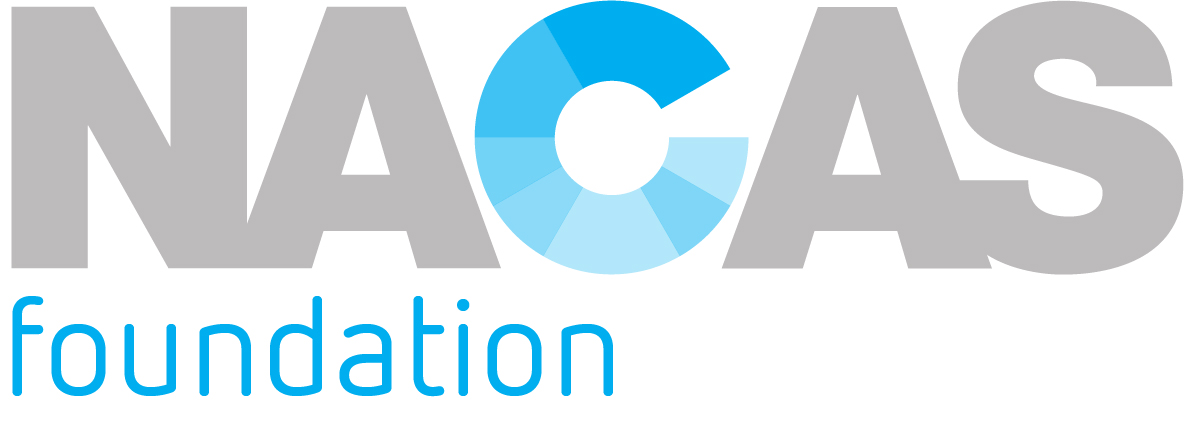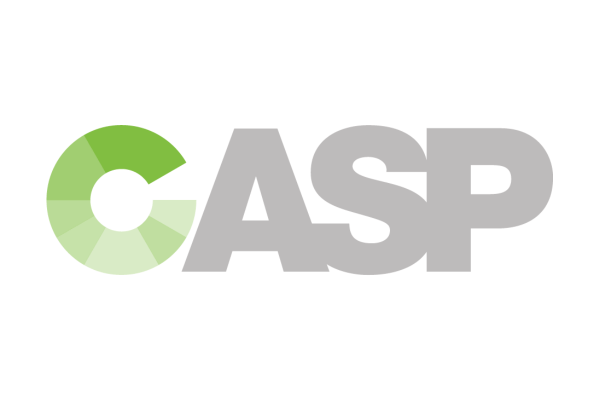3 min read
NACAS Foundation Names Winner of the Campus Care Grant: Associated Students, Inc., California State - Fullerton
WRITTEN BY:
Abby Hazekamp, Marketing Manager, NACAS
Mansi Kalra, Vice President, ASI CSUF
Asha Nettles; Director, Leader & Program Development; ASI CSUF
(November 15, 2019 | Charlottesville, Virginia) — The NACAS Foundation is pleased to announce that on November 5, 2019 at the C3X Annual Conference & Expo, Associated Students Inc. at California State University – Fullerton (ASI CSUF), was named the recipient of the Campus Care Grant.
“None of us — the NACAS Foundation Board members — could have been more surprised at the number of grant proposals that we received. That number was more than 100 with 99 that met all the criteria which included sustainability, replicability, budget, and metrics for success. This number led us to believe what we did indeed suspect: That there was a need for our grant,” said Melissa Moore, NACAS Foundation President. “We are thrilled that ASI CSUF will be able to use the grant money to create a customer-choice pantry where students are empowered to shop for what they need.”
The Campus Care Grant was introduced by the Foundation in the summer of 2019 with the intention of providing funds up to $25,000 to college and university programs that address students’ access to basic needs, such as food insecurity, housing insecurity, safety, and counseling. Applicants were asked to provide a written statement, budget proposal, and letters of support from members of the campus community.
“While the affordability of tuition continues to be the leading issue in higher education, we know from our research that students rank worrying about basic needs as the number two greatest barrier to their success,” said Kelsey Harmon Finn, NACAS CEO. “The Campus Care Grant expands the level of support campuses can provide to students through service delivery, bridging the gaps between what students have and what they need to thrive.”
ASI CSUF provides student development opportunities through leadership, volunteer, and employment experiences. In addition, they provide campus community members with important social, cultural, and recreational opportunities. With their plan to create a campus food pantry, ASI CSUF supports the California State University system’s mission to increase access to on-campus resources for student groups who are disproportionately experiencing the highest levels of basic needs insecurity.
“The food pantry we are planning to create is aimed at serving students impacted by food insecurity by providing access to food and basic necessities and referrals to campus and community-based resources, thereby maximizing student success. The pantry would be available to any student who feels that they are in need,” said Mansi Kalra, Vice President of ASI CSUF.
Long-Term Sustainability
In addition to ensuring proper nutrition and the elimination of food waste, ASI CSUF and the Foundation felt it was important to examine the long-term sustainability of the program. The intake and check-in process planned for the food pantry will provide information about the individuals they are serving across campus. This information will help them identify any students they are not reaching and will provide an opportunity to share impactful narratives with future donors who may provide financial support for the program.
“It is imperative that the pantry function in a way that upholds student dignity and fights the stigma surrounding food insecurity,” said Asha Nettles, Director of Leader and Program Development at ASI CSUF. “We have been working to create an intake system that caters to students’ individual needs by assessing their financial aid status and providing them the appropriate amount of resources accordingly.”
Another component to ensuring the long-term sustainability of the food pantry project is collaborating with a number of community partners who can provide the resources needed to combat hunger. One of those potential community partners is Pathways of Hope. Pathways of Hope provides access to food, shelter and housing to those experiencing hunger and homelessness in North Orange County.
ASI CSUF is also planning to work with Second Harvest Food Bank, who will be providing fresh produce and non-perishable food for the pantry. The group also will help with staff training and providing educational materials and best practices on pantry destigmatization.
“With these partnerships, we will be able to build the program of our food pantry and work alongside those who are already doing the work within the Orange County community,” said Kalra.
In order for students to fight food insecurity, they must first be able to understand it. There is a false understanding that food insecurity is synonymous with starvation or hunger. Students must understand that there are different levels of food insecurity, and that it can look different for different people. ASI CSUF says educational marketing will play a vital role in this project, and ultimately, the fight to end food insecurity on campus as a whole.
“When students are dependent on Ramen and Cup of Noodles as their main source of food, they are facing food insecurity,” said Nettles. “The narrative of the broke, hungry college student is very normalized in society. Fighting this perception is imperative to successfully fighting food insecurity.”
Impact on Students
According to a 2019 California State University study on student service access and basic needs, students who accessed services both on- and off-campus were typically those experiencing the most acute levels of food and housing insecurity. Repeatedly, findings show that the students who utilized services most often needed them the most. This affirms that the students who accessed services were doing so because their needs were acute.
Students were more often in situations so desperate that they were negotiating an untenable juggle of employment, academic demands, and housing and food insecurity. The majority of students who experienced food insecurity, homelessness, or both reported that their financial aid package did not cover all of their living expenses. Students did not have enough financial resources and had to make compromises that significantly impacted their health and quality of life. Many students were unable to navigate meeting their basic needs without help.
Food security also impacts grade point average (GPA). In general, students with the highest level of basic needs insecurity who accessed services had lower GPAs. Further, students who were both food insecure and experienced homelessness accessed services at the highest rates and also had the lowest GPAs. The implication of this is that students who are utilizing services have an increased level of need and are at a higher risk of diminished academic outcomes.
The study found that on average, based on any level of basic needs security, students of color accessed campus food pantries at higher rates than White or Non-Hispanic students. On average, students who were Pell-eligible (14.9%) accessed the food pantry more often than those who were not (9.1%). Women (12%) and men (12.2%) accessed the food pantry at similar rates. First-generation college students (14.7%) accessed the support more than non-first-generation college (10.4%). Food pantries were identified by students as vital. The greatest proportion of students who accessed the on-campus food pantry reported being food insecure and experiencing homelessness (18.9%), compared with students who were only food insecure (16.7%), were only homeless (10.8%), or were food secure and housed (8.3%).
Basic Needs as an Industry Issue
What are auxiliary services? ASI CSUF says they are more than just food services, bookstores, student unions, facilities or even concessions. Auxiliary services provide the essential components to the co-created environments that students interact with every day.
“From their inception, auxiliary organizations have been strong partners in providing a number of key resources, programs, and services that complement and complete the students’ and campus community’s experience with the university,” said Nettles. “It is important to focus on combating basic needs as these needs are at the heart of our students’ experience.”
According to a NACAS Research study conducted in partnership with Riddle & Bloom and Prism RBS, we know that 68% of students define success by personal trait or attainment, such as being committed, working hard, being ambitious, or achieving goals. The top three ranking factors in achieving success are student community (76%), access to academic personnel (71%), and non-academic staff or auxiliaries (54%).
NACAS has found that there is a direct positive correlation between students who consider themselves highly successful and the rate at which they believe auxiliary services is important to their success. However, there is a gap between perceived importance and the feeling of direct impact. NACAS hopes to make progress in researching the impact that auxiliaries are making in mitigating basic needs and intends to collect more data to prove this outcome.
“We believe auxiliary service professionals can close this gap between perceived importance and the feeling of direct impact. We believe what students are asking for to improve their success is outside the classroom access. That means more time with academic staff, access to their community and peer-to-peer mentoring, and more access to you as auxiliary services professionals and student employers,” said Finn. “It is our duty as auxiliary services professionals to make sure that students have their best shot at success by ensuring their most basic needs are met.”
ASI CSUF says their food pantry is not the only solution to end food insecurity and college hunger. The root of the problems surrounding hunger are rooted in the high costs of living, the burdens of tuition, and the low wages that students must face on a daily basis. Food insecurity is the byproduct of multiple systematic issues and, they say, we must pay special attention to addressing those systemic barriers that are holding students back. In the meantime, the food pantry provides a means of sustenance.
“The goal as a leader is not to come back to campus years from now and see that the pantry is still here, said Kalra. “The goal is to come back and see that we no longer need a pantry because we have made effective, meaningful changes to address student wellness.”

